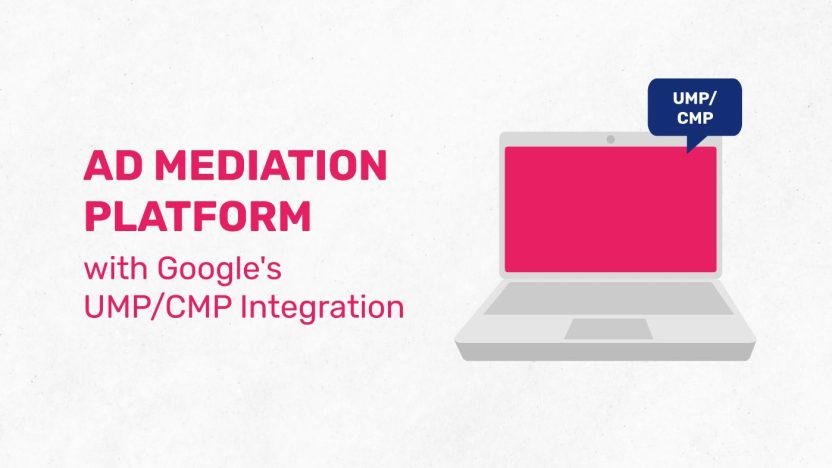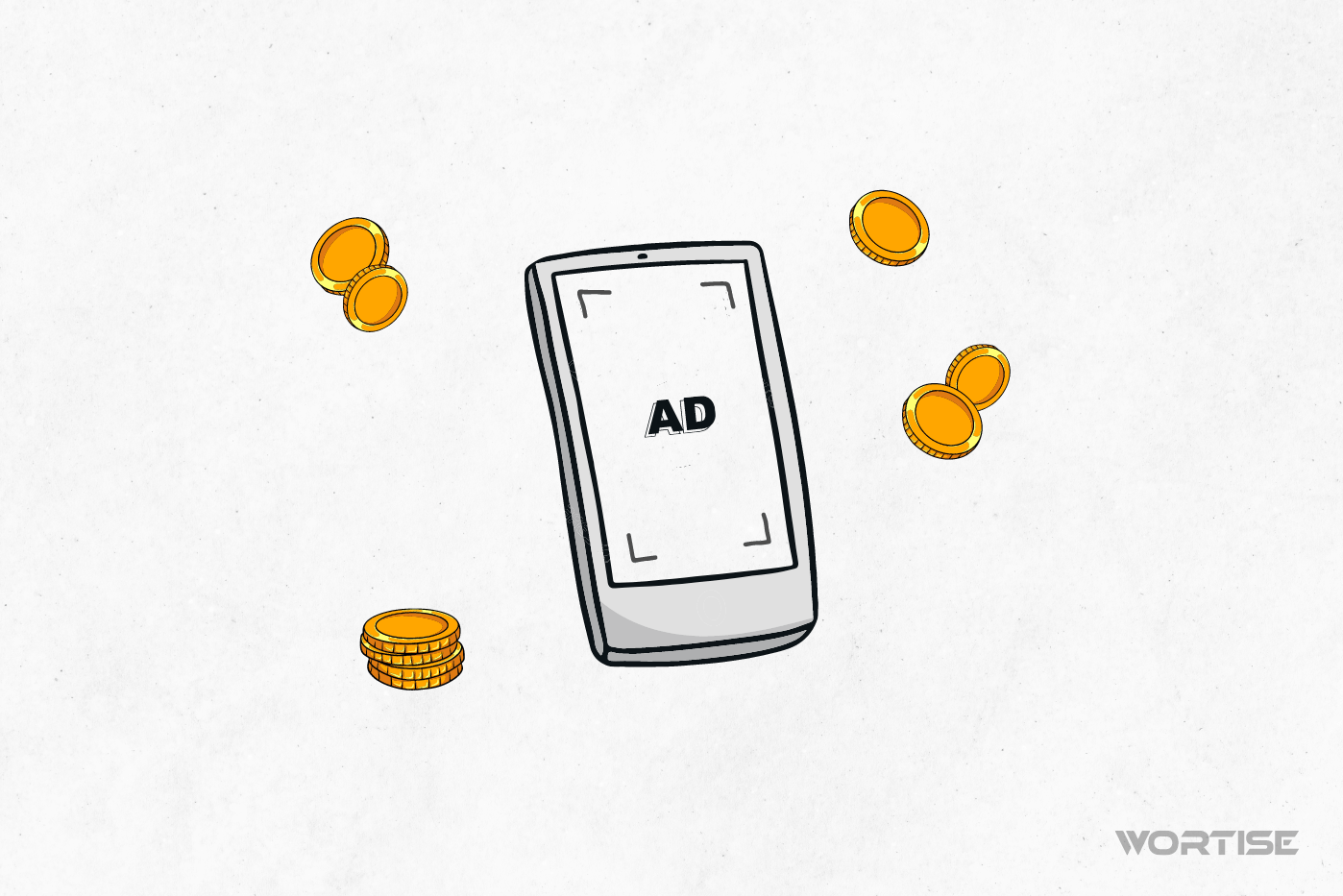Thinking about ensuring user data protection without integrating Google’s UMP/CMP is illogical. If a mediation platform lacks this tool or, on the contrary, hinders its integration, it exposes publishers and advertisers to suspensions, lawsuits, and claims. Fortunately, platforms like Wortise have Google’s CMP integrated into their software development kit (SDK).
All of this simplifies and streamlines the process of obtaining user consent, as there is no need to implement and manage a CMP separately. Each publisher can be sure that they will not engage in actions that jeopardize their application.
In this post, we want to tell you how Wortise, an ad mediation platform with Google Publisher Partner certification, has integrated Google’s UMP/CMP and all the benefits that come with it.
What is Google’s CMP?
We have all entered a website or mobile app, and suddenly a message appears asking us to approve cookies. You decide whether to accept or not; nothing is imposed or mandatory.
The Consent Management Platform (CMP), is a Google tool that helps publishers and advertisers comply with data protection consent requirements established by international organizations and governments, mainly in Europe, the UK, and the United States.
In simple terms, CMP allows publishers to collect and manage user consent for the use of cookies and other tracking technologies on their websites and apps. All its functions make it possible to obtain explicit and specific consent from users before activating any type of personalized advertising.
Being essential for proper monetization without violating user privacy, CMP offers flexible configuration options so that publishers can adapt and customize consent preferences according to their needs.
Why Choose a Platform with Google’s UMP/CMP Integration?
Let’s put it this way: Google’s CMP is the ally that helps you comply with privacy and data protection regulations to avoid penalties and suspensions. It’s a way of telling international organizations, “Hey, relax, don’t worry about user data; my Google CMP is here!”
For example, in the European Union (EU), there is the General Data Protection Regulation (GDPR), which has a set of rules to protect user privacy and prevent data breaches. Violating this regulation can result in a fine of up to 4% of annual revenue (which can be substantial).
User data will always be a top priority for governments and international organizations. Therefore, make sure to choose an ad mediation platform that does not hinder integration with Google’s CMP. Why? Here are four reasons:
#1 Regulatory Compliance: Google’s CMP is designed to comply with privacy regulations in the US and the European Union primarily. Using it ensures that you can obtain the appropriate user consent for the use of cookies and tracking technologies.
#2 Transparent User Experience: By providing clear information about how user data is used, you increase transparency levels. The result is clear: user trust and satisfaction grow, as they have the freedom to make informed decisions about their data.
#3 Simplification: CMP integration provides a centralized solution for managing user consent in your application, saving time and resources on compliance.
#4 Maintaining Advertising Revenue: Google’s CMP is a great ally in optimizing advertising revenue. The reason is simple: every publisher ensures that personalized ads are displayed to users who have given their consent. As you can see, it’s an excellent balance between in-app monetization and data protection.
How Does Google’s UMP/CMP Integration Work in Wortise?
As mentioned in the introduction, Wortise’s SDK includes support for Google’s CMP, allowing for a centralized solution to manage user consent without having to implement independent CMPs.
Is it worth it? Is it a wise decision? Without a doubt, we can say that it is a more straightforward integration than what Google offers if, for example, you try to add UMP directly.
To request user consent in Wortise, you only need to ensure you call the ConsentManager.requestIfRequired method in the mobile application.
This action will display a dialog only when necessary – usually during the app’s initial launch – for the user to grant or deny consent.
Another method is ConsentManager.request if you intend to display the dialog always and not just when necessary. The idea is to allow the user, for example, to see an option in the settings screen that allows them to change their consent at any time.
At Wortise, we understand the importance of CMP within the mobile advertising world, especially in the European region. We are subject to GDPR and work to apply the same transparency standards to users, regardless of their location.
Do All Platforms Have Google’s CMP?
We can unequivocally say no, especially if your monetization plans are for the future. Google’s policies change according to the regulations they are subject to in the European region.
Starting from January 16th of next year, publishers using Google AdSense, Ad Manager, or AdMob will be required to use a CMP platform that is certified by Google and incorporates the IAB’s Transparency and Consent Framework (TCF).
Google’s advice to publishers is straightforward: work with a CMP certified by them and meeting the basic and necessary criteria of TCF, a guarantee for managing user consent in the European Union and the UK.
When a platform successfully integrates CMP and receives certification from Google, it is included in an official list (you can find more details here).
Tips for Choosing the Best Ad Mediation Platform with Google’s Certification
Before making a hasty decision, consider these points when choosing a platform with Google-certified CMP:
- Certification: Check Google’s list of certified CMPs. Choose a reliable one with a strong commitment to user data protection.
- TCF Compliance: Ensure that the CMP you want to integrate complies with the latest Transparency and Consent Framework (TCF v2). This ensures that you stay up-to-date with privacy regulations.
- Check the Rest of Their Features: The goal is not to choose any platform just because it has Google certification. No, you should consider other vital features, such as the ability to adapt quickly to regulatory changes and the flexibility it offers.
- Consider Their Experience: Many platforms have integrated Google’s CMP, but not all have the full support of users. Stick with one that has a high reputation and is transparent in all its processes.
In general, not integrating a suitable CMP can leave each publisher vulnerable to international regulations and erode user trust, as they may be disappointed by the lack of transparency regarding their personal data.
Types of Messages You Can Configure to Request User Consent
When configuring Google’s CMP for an application, you can customize the messages shown to users regarding the use of cookies and permissions. Here are three examples:
#1 General Consent Message
“We use cookies and other tracking technologies to enhance your experience in our app and provide you with personalized content. Do you agree to the use of these technologies?”
#2 Necessary Cookies Message
“We need to use essential cookies for the basic operation of the application, such as login and security. By using our app, you agree to the use of these cookies.”
#3 Advertising Cookies Message
“We use advertising cookies that collect information about your preferences and behavior in the app to show you relevant ads. Do you agree to the use of these cookies?”
How Does Google’s UMP/CMP Influence CPM?
Although CMP and Cost Per Mille (CPM) do not have a direct relationship in monetization tasks, they can have an indirect impact on publisher advertising revenue.
Firstly, Google’s CMP helps you comply with privacy regulations in Europe and the UK, where there is a large number of active mobile app users who can boost your CPM.
Furthermore, with CMP, you can have user consent for receiving personalized ads. Do you know what this means? Each ad can reach the right user, increasing the value of each impression.
On the other hand, Google’s CMP provides users with a more personalized experience by allowing them to control their privacy preferences. They decide whether to accept the proposal within the app or not. It’s an efficient way to respect their privacy, which increases the likelihood of more interactions.
Honestly, it’s difficult to imagine how much an appropriate implementation of CMP can generate for a publisher. There are many factors at play, and beyond monetary aspects, the priority of CMP is to protect user data and maintain your app or website as a trustworthy space. And as you know, it’s impossible to grow monetarily without trust and security.
Achieve Seamless CMP Integration with Wortise and Monetize Securely
Hello, Publisher! Focus on your code and leave monetization tasks to Wortise.
Although our company was born in Argentina, we operate within the European Union – we have a presence in Spain – and we adopt full and effective compliance with data privacy regulations as a central policy. We protect publishers, advertisers, and end users.
At Wortise, we combine privacy with effectiveness in monetization. We connect you with over 100 Ad Networks, offer the highest eCPM in the market, and provide personalized support to address any monetization-related questions.
Get in touch with us today.




